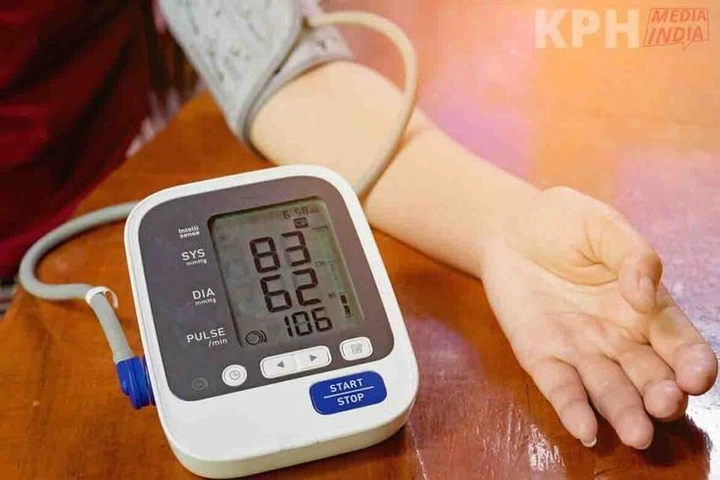High blood pressure refers to a blood pressure reading in which it is determined that the force that blood exerts on the walls of your arteries is high. It is a silent killer and is often caused by several factors among which are lifestyle and dietary factors. It is a common condition that affects many people in the world today and studies have shown that it can be particularly dangerous when not controlled.
This article would be looking at some of the things that high blood pressure can do to your body when you don’t control it on time. About 10 of such things, according to James Beckerman of WebMD are examined below:
1. Heart failure
One of the damaging things that high blood pressure can do to your body is heart failure. This is because high blood pressure can make your arteries narrow, and over time, your heart is forced to work harder and get weaker as a result. Eventually, your heart may become so weak that it can not supply enough blood to the rest of the body, leading to what is known as heart failure.
2. Enlarged heart
As the muscle of your heart works harder to move blood around as a result of high blood pressure, your whole heart would get larger, and the bad news is the bigger your heart gets, the less able it becomes to do its job, which, in turn, would imply that your tissues would not have access to oxygen and other nutrients they need.
3. Stroke
Studies have shown that high blood pressure is the most common cause of stroke. Stroke is of two types namely; haemorrhagic and ischemic stroke. While the former is caused by a weakened artery that bursts in the brain, the latter is caused by a clot of plaque that comes loose and blocks blood flow to brain cells. Both can make certain parts of your brain die when it is starved of enough blood, thus reducing your ability to think, move, speak, and see.
4. Artery damage
It is generally believed that if you are healthy, your arteries should be sturdy, springy, and smooth, which, in turn, would allow blood to move easily from your heart and lungs to your organs and other tissues. With high blood pressure, the walls of your arteries are pushed too hard, and this can damage the inside, causing plaque to form. Plaque can make your arteries get stiff and narrow, increasing your risk of heart disease.
5. Aneurysm
Aneurysm refers to a scenario in which pressure pushes out a section of an artery wall and weakens it. If the weakened artery wall breaks, it can bleed into your body, leading to a life-threatening situation. This condition is most common in the aorta, which runs down the middle of your body.
6. Coronary artery disease (CAD)
Coronary artery disease is said to occur when plaque builds up in the arteries close to your heart, thus slowing down the flow of blood, and leading to a host of symptoms that may include chest pain and a strange heart rhythm (called an arrhythmia). When the blockage is total, it may lead to a heart attack.
7. Heart attack
Heart attack is often a result of excessive plaque buildup, especially when such plaque completely blocks off an artery to your heart. The blockage is capable of starving your heart muscle of oxygen and nutrients, which in turn, can damage it. A few of the symptoms you may feel include pressure or pain in your chest, but sometimes in your arm, neck, or jaw too, difficulty breathing, and dizziness.
8. Peripheral artery disease (PAD)
Peripheral artery disease is quite like coronary artery disease, with the major difference being that while the latter affects your heart, the former affects the blood vessels farther from your heart such as those in your arms, legs, head, or stomach. You could have symptoms such as pain or cramps in your legs, often when you walk or climb stairs, and tiredness. When untreated, it can cause more serious problems like stroke, ulcers, and loss of circulation in your legs.
9. Kidney failure
According to WebMD, high blood pressure is the second-leading cause of kidney failure. Its profound negative effect on your kidneys is due to its ability to harden and narrow the blood vessels used by your kidneys to get rid of waste and extra fluid. This, in turn, prevents nephrons, from getting enough blood and nutrients, which can eventually damage your kidneys.
10. Eye problems
Over time, high blood pressure can also affect your vision as it can slow down the flow of blood to your retina, which is the light-sensitive layer of tissue at the back of the eyeball. What’s more, high blood pressure can also slow the travel of blood to the optic nerve, which helps send signals to your brain, causing your eyesight to become blurred or you even lose your vision in some cases.








